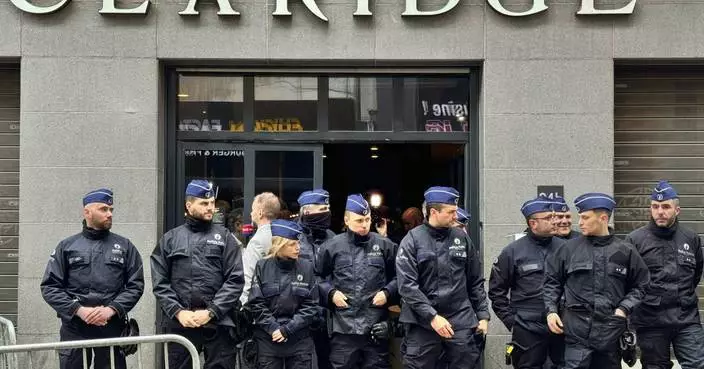The two contestants in Lithuania's runoff election for a new president have one thing in common: They want to maintain the strict tone toward neighboring Russia while easing sometimes harsh rhetoric.
Gitanas Nauseda, a prominent economist, and Ingrida Simonyte, a former finance minister, are vying to succeed the popular Dalia Grybauskaite, who has called Russia "a terrorist state."
"Too harsh rhetoric is not a solution. We can't shut all the windows with the neighbor in diplomatic, cultural and economic relations," Nauseda, 55, told The Associated Press ahead of Sunday's runoff ballot, held the same day as the European Parliament elections.
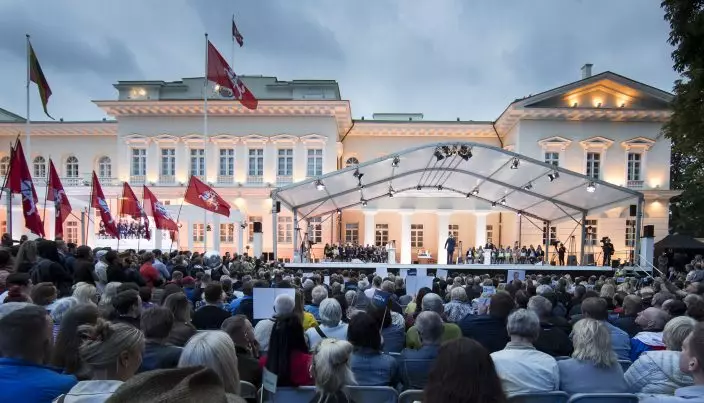
Former finance minister Ingrida Simonyte and Economist Gitanas Nauseda, right, presidential candidates, attend their debate at the S. Daukanto Square, in front of the Presidential Palace in Vilnius, Lithuania, Friday, May 24, 2019. Gitanas Nauseda and a former finance minister Ingrida Simonyte held the top two spots in returns from Lithuania's presidential election Sunday, May 26 and appeared headed to a runoff ballot later this month to choose a successor to incumbent Dalia Grybauskaite. (AP PhotoMindaugas Kulbis)
The business-oriented Nauseda is not supported by any political party but calls himself "a man of center-right."
"I do not see any reasons to change course in relation to Russia because nothing has changed there," said the 44-year-old Simonyte, who was finance minister from 2008-2012 when Lithuania suffered from severe economic hardship and harsh austerity measures.
"But I think what we have to do in a broader sense is to prepare to talk with the Russia of the future," she added. Simonyte also isn't a member of any political party but is supported by the right-leaning opposition.
Both candidates have taken a "pragmatic approach" to relations with Russia with less confrontation — but they also have stressed that they won't go to Moscow and meet President Vladimir Putin unless his country withdraws from Crimea, which it annexed from Ukraine in 2014, said Jurate Novagrockiene, a political scientist with the General Jonas Zemaitis Military Academy in the capital Vilnius.
The annexation sparked fears that other former Soviet republics could be next.
This presidential campaign, however, has been dominated by voters' anger over economic inequality and corruption.
The income inequality in Lithuania, a Baltic country of 3 million, is among the highest in the European Union, which it joined in 2002.
The presidential hopefuls have vowed that tax income should be raised to fund more state spending.
Novagrockiene expects a close race on Sunday with an edge to Nauseda, who has said he wants to increase revenues and better fund social services such as pensions.
In the first round, Simonyte received 31.21% and Nauseda 30.93% of the votes. A runoff was needed as neither received more than 50%.
Grybauskaite, president since 2009, has been a strong critic of Putin and campaigned on stopping corruption and improving Lithuania's economy. She must step down after her two five-year terms.
Casting her ballot in early voting on Tuesday, Grybauskaite wished "strength" for the winner who will take office in July.
WARSAW, Poland (AP) — Polish Prime Minister Donald Tusk expressed satisfaction on Monday after a series of candidates supported by his party won weekend races for mayor.
Candidates from his pro-European Union centrist Civic Coalition, or running with the party's backing, won in a series of cities in the second round of local elections held on Sunday, among them Krakow, Poznan, Wroclaw and Rzeszow.
“It is very difficult to clearly say who won and who lost,” Tusk said Monday. “But if we compare these results, especially in the most attractive places, on these attractive battlefields ... then I actually have reasons for satisfaction.”
“Law and Justice has simply disappeared in many places,” Tusk added at a news conference, referring to the main opposition party.
The results put Civic Coalition in a favorable position as the country looks next to elections to the European Parliament on June 9.
Mayors were chosen in a total of 748 cities and towns where no single candidate won at least 50% of the vote during the first round on April 7.
Candidates for Tusk’s party also recaptured cities where they had not held power for many years, including Zielona Gora, Legnica and Torun.
The local and regional elections were viewed as a test for Tusk's pro-European Union government four months after it took power at the national level. Sunday's second round strengthened the Tusk government's leverage in the cities, which should facilitate cooperation on development projects and allotment of EU funds.
Tusk's allies also won in some places in the first round two weeks ago, including in Warsaw, where incumbent Mayor Rafal Trzaskowski was an easy victor.
In the first round, the right-wing Law and Justice, prevailed on the level of regional assemblies in the country's 16 provinces, where it took 34.3% of the votes, while Tusk's Civic Coalition got 30.6%. Law and Justice governed on the national level from 2015-23.
Tusk’s socially liberal Civic Coalition traditionally has strong support in cities, while Law and Justice has a more solid base in conservative rural areas, particularly in eastern Poland.
Civic Coalition is the largest group in a three-party coalition that governs the EU nation of 38 million people. The coalition is pro-European Union but otherwise spans a wide ideological spectrum with left-wing politicians in the Left party as well as conservatives in the Third Way.
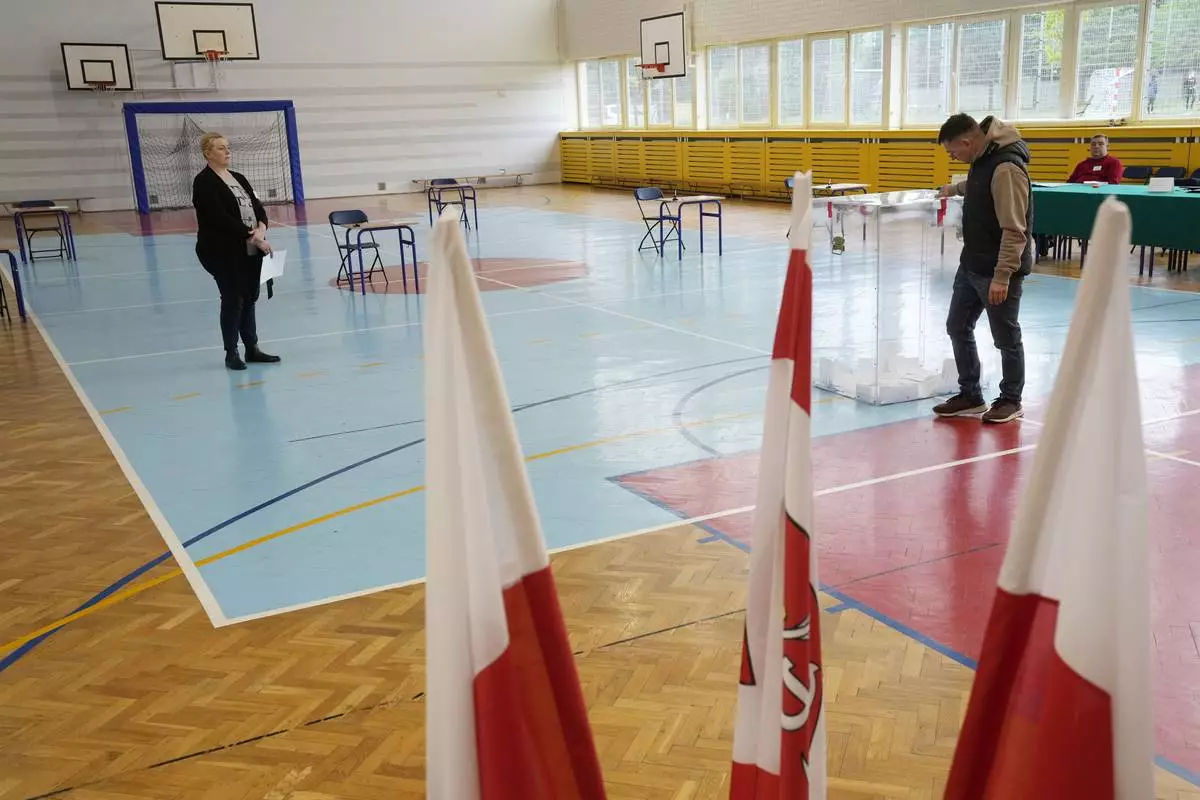
Polish voters take part in a local runoff election in Lomianki, near Warsaw, Poland on Sunday, April 21, 2024. Voters are choosing mayors who did not win outright in the first round of the election two weeks earlier. (AP Photo/Czarek Sokolowski)
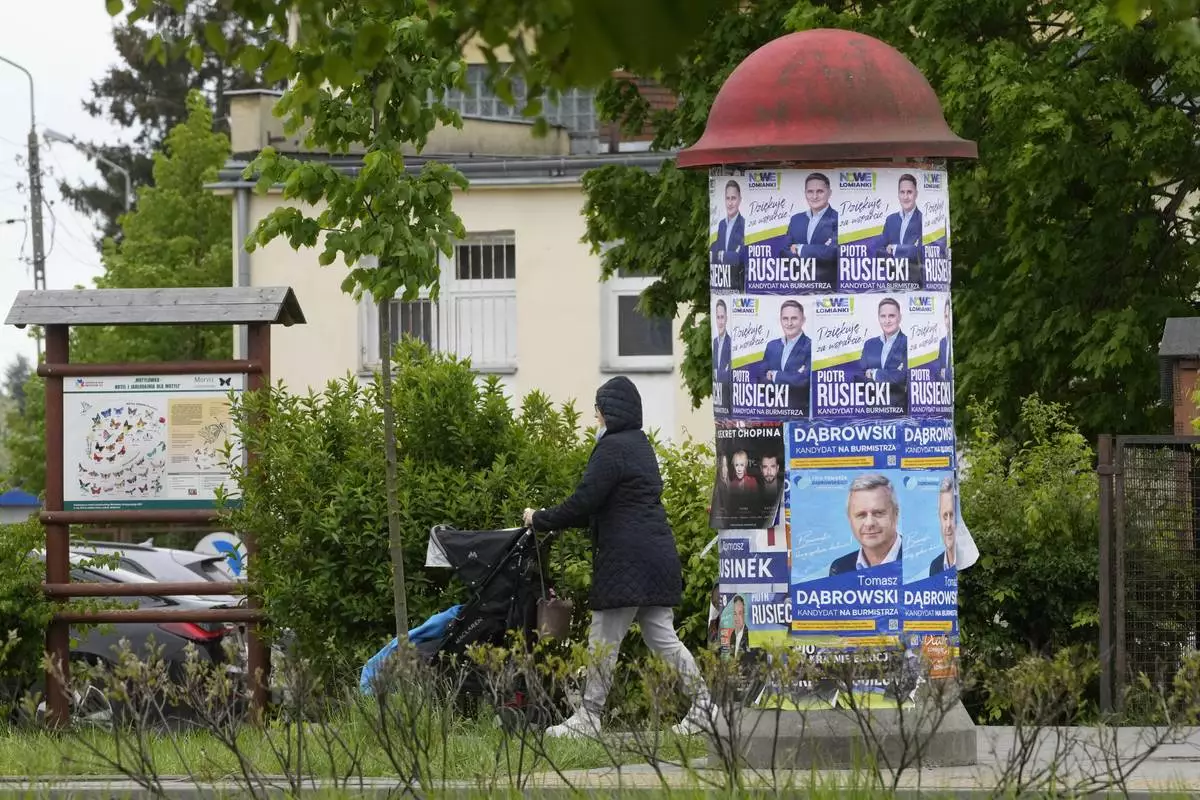
Campaign posters promote candidates as Poles vote in local and regional elections in Lomianki, near Warsaw, Poland on Sunday, April 21, 2024. Voters are choosing mayors who did not win outright in the first round of the election two weeks earlier. (AP Photo/Czarek Sokolowski)
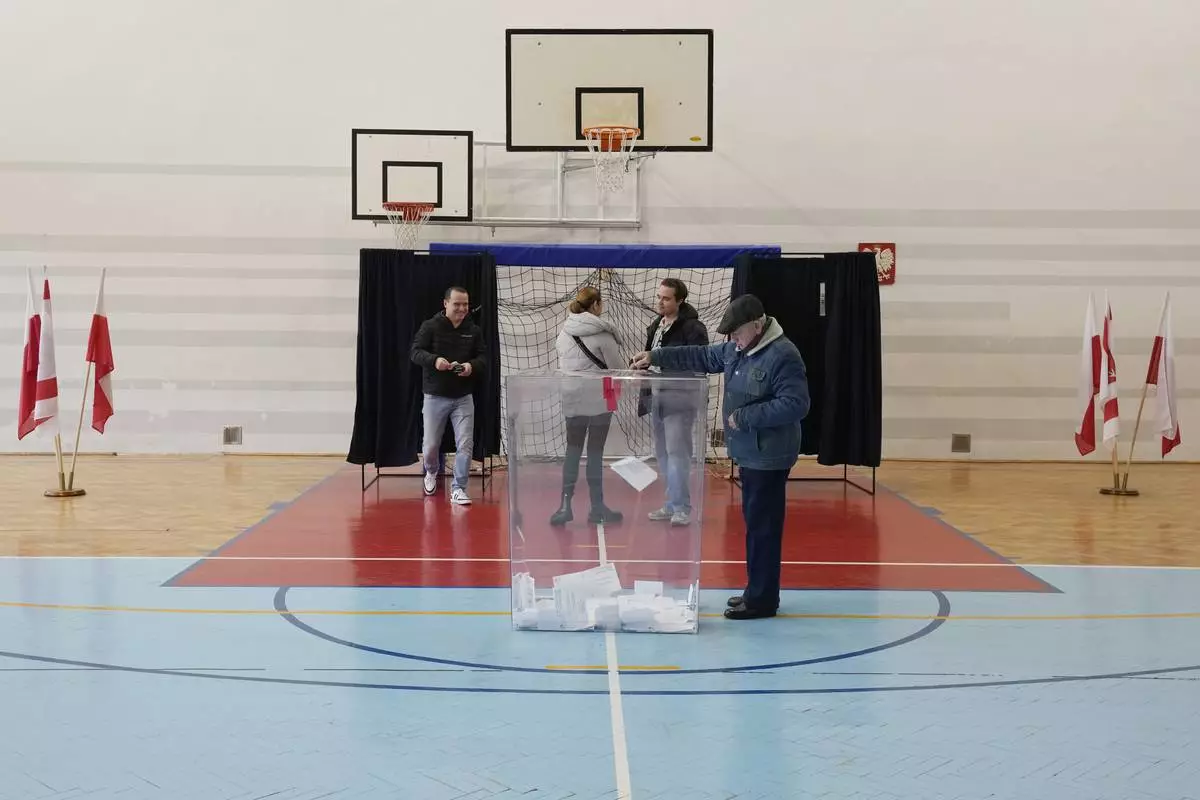
Polish voters take part in a local runoff election in Lomianki, near Warsaw, Poland on Sunday, April 21, 2024. Voters are choosing mayors who did not win outright in the first round of the election two weeks earlier. (AP Photo/Czarek Sokolowski)
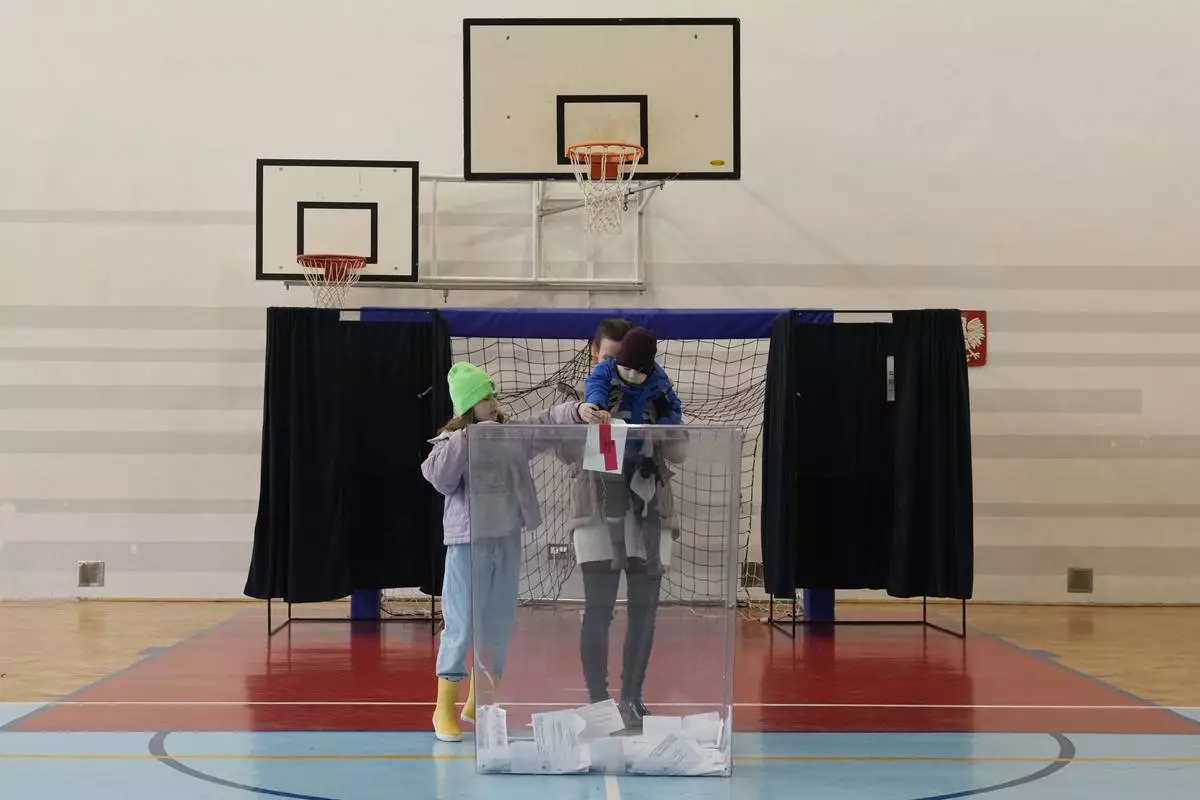
Polish voters take part in a local runoff election in Lomianki, near Warsaw, Poland on Sunday, April 21, 2024. Voters are choosing mayors who did not win outright in the first round of the election two weeks earlier. (AP Photo/Czarek Sokolowski)
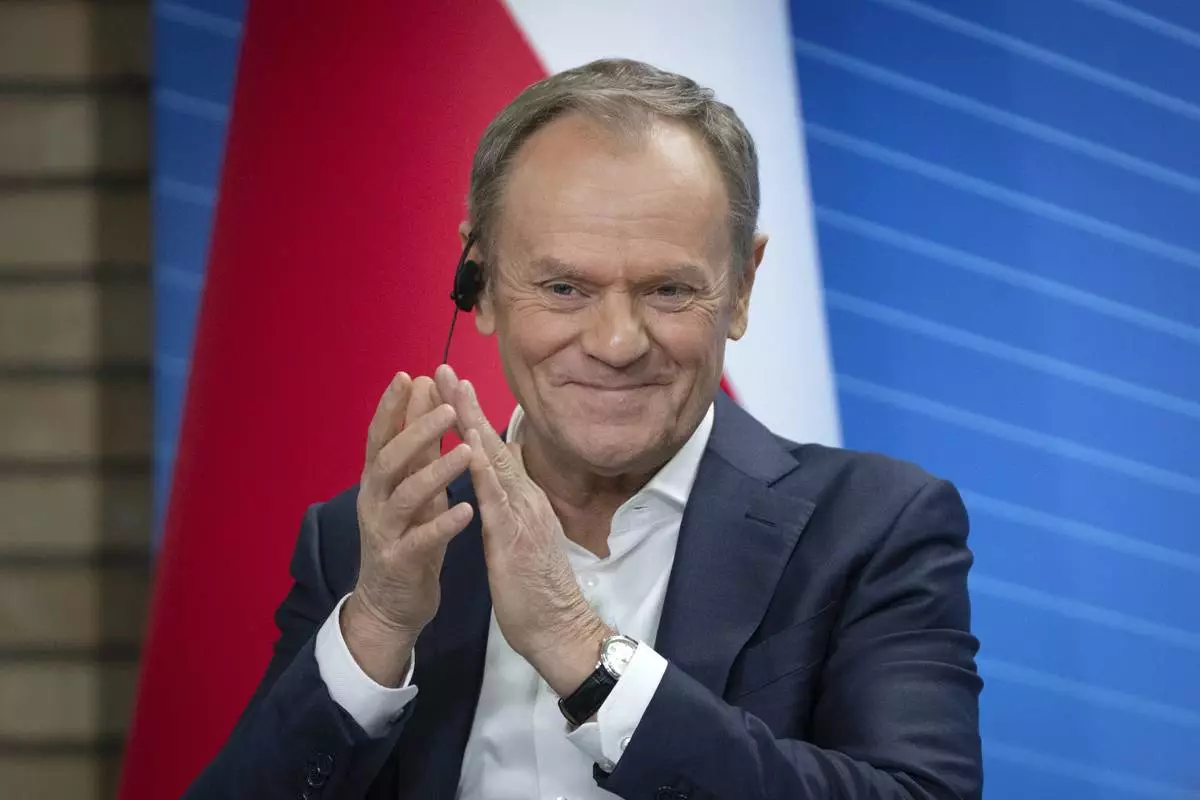
FILE - Poland's Prime Minister Donald Tusk reacts during his and Ukrainian President Volodymyr Zelenskyy meeting with students in Kyiv, Ukraine, Monday, Jan. 22, 2024. Poland's Prime Minister Donald Tusk is celebrating a victory on Monday April 22, 2024 after a series of candidates supported by his party won weekend races for mayor. (AP Photo/Efrem Lukatsky, File)
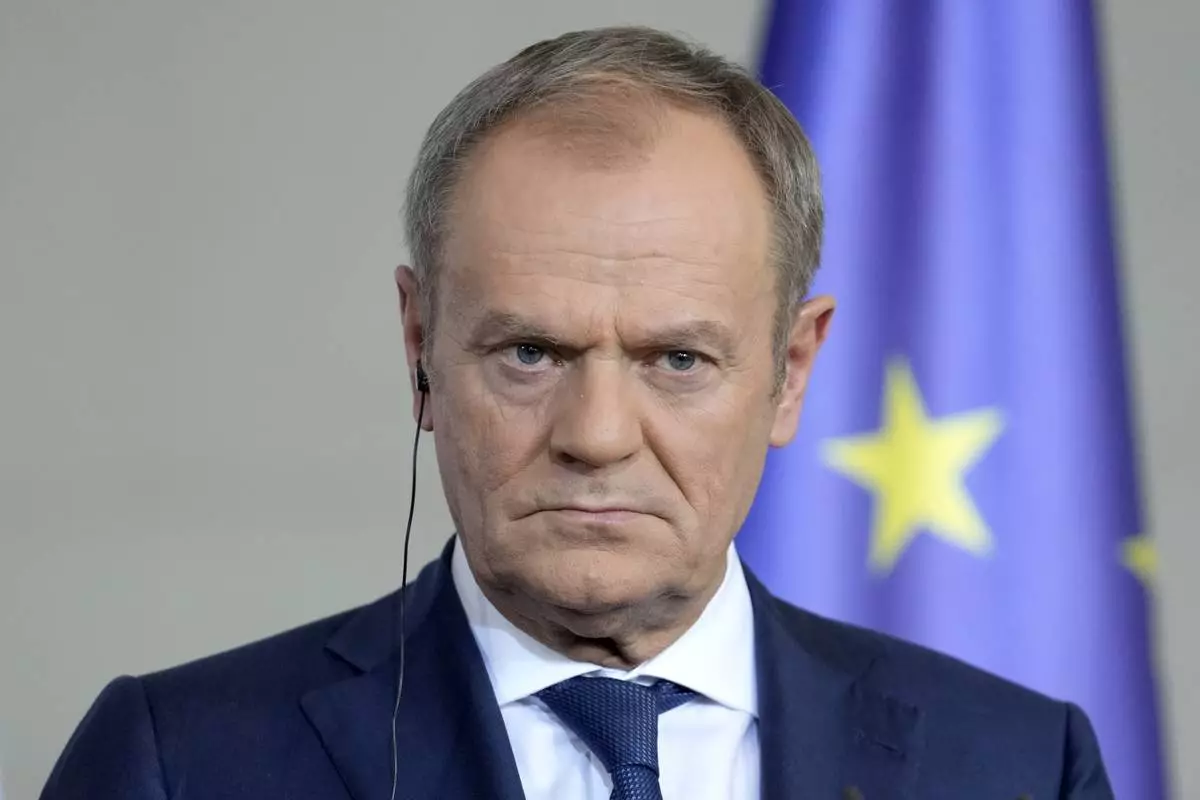
FILE - Poland's Prime Minister Donald Tusk listens to the media in Berlin, Germany, Friday, March 15, 2024. Tusk is celebrating a victory on Monday April 22, 2024 after a series of candidates supported by his party won weekend races for mayor. (AP Photo/Ebrahim Noroozi, File)
















